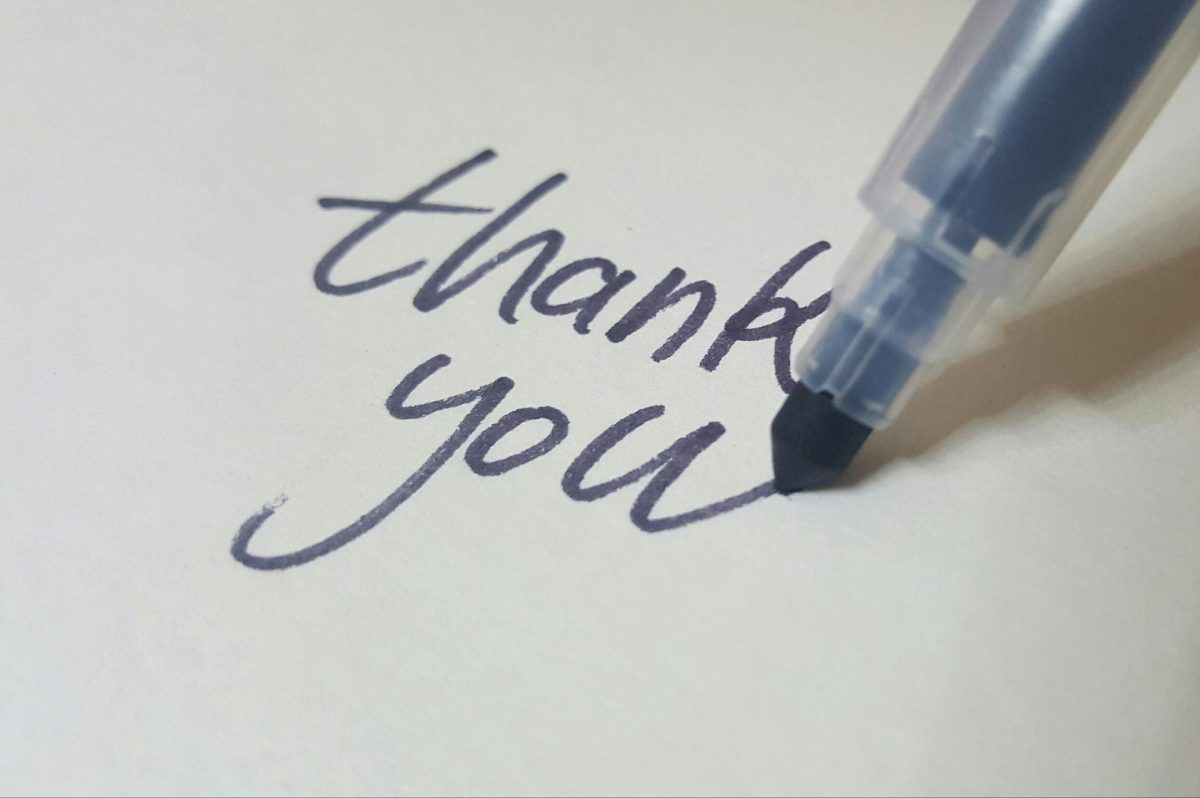Think about it. What phrase makes you smile more than almost any other? What phrase makes you feel good? Or feel appreciated? I would venture to say that the words “thank you” make up one of the most powerful two-word (non-profanity-laced) phrases in the English language. Why is this? Let’s start exploring.
Breaking Down the Meaning
Merriam-Webster defines the word thank as: to express gratitude to (and I would add) or appreciation for. The word you is defined as: the one or ones being addressed.
So, put together the phrase “thank you” is: a polite expression of gratitude to or appreciation for an act, offer, service etc.
But somehow, this doesn’t seem to do it justice. Individually, these are just two ordinary words in the English language. Together, they take on a life of their own.
Research shows that hearing the word “thank you” truly does make a difference. And that people tend to underestimate the power of saying thanks.
What “Thank You” Makes Me Think of
When I hear the phrase “thank you,” I’m reminded of the Dido song “Thank You,” written and performed by English singer/songwriter Dido and released on Dido’s 1999 debut album No Angel. The first line of the chorus, to me, captures the true power this phrase packs into two lines:
I, want to thank you, for giving me, the best day of my life
Oh, just to be with you, is having, the best day of my life
As Dido’s song points out, there may only be one feeling equal to or better than being the beneficiary of a nice gesture or an act of kindness. That would be being the recipient of the gratitude or appreciation expressed by the receiver of a “good deed.”
The power-phrase “thank you” also reminds me of the many acts of kindness directed toward my mother (Maxine) and wife (Alyson) during their battles with cancer. In the Acknowledgements section of Know Your Enemy, I had a four-page thank you to all of the special individuals that touched our lives. I want to take this opportunity to publicly share two passages from the book:
Each of them (Max and Alyson) literally had “an army” of supporters that were with them every step of the way. I want to thank this special group of individuals for their many acts of kindness and prayers during our greatest time of need. This group included: family members, longtime friends, neighbors, classmates, work colleagues, church parishioners, and fellow cancer patients…
Max and Alyson were blessed with an exceptional group of highly-skilled healthcare professionals – warriors in their own right – who cared for them and worked tirelessly on the frontlines every day of our battles…
Harnessing the Power of “Thank You”
In this informal age of email and texting communications, individuals tend to be less likely to acknowledge and respond to written acts of kindness (e.g., a referral request, an answer to a question, a special recommendation). I personally, don’t view this as progress or as Martha Steward would say as…”a good thing.”
So maybe it’s time to take a good look at yourself and how often you stop and say “thank you” when people help you whether it’s a small favor (like taking in your mail) or a huge one (like caring for you when you’re sick).
If you are currently going through a major health matter, a personal or professional challenge or a typical life issue, hopefully, you have a strong support network that you can rely on for strength and assistance.
Just remember, most friends and family members will rally, when called upon, to help fellow loved ones in their times of needs. Oftentimes, these special individuals only want to be asked to help and directed as to how they can help.
And when the help is delivered, in whatever form it is required, a sincere recognition of the gratitude and appreciation followed by the power-phrase “thank you.”
How do you feel when people say “thank you”? Do you think you say it enough? Do other people? Share your thoughts in the comments section below.

